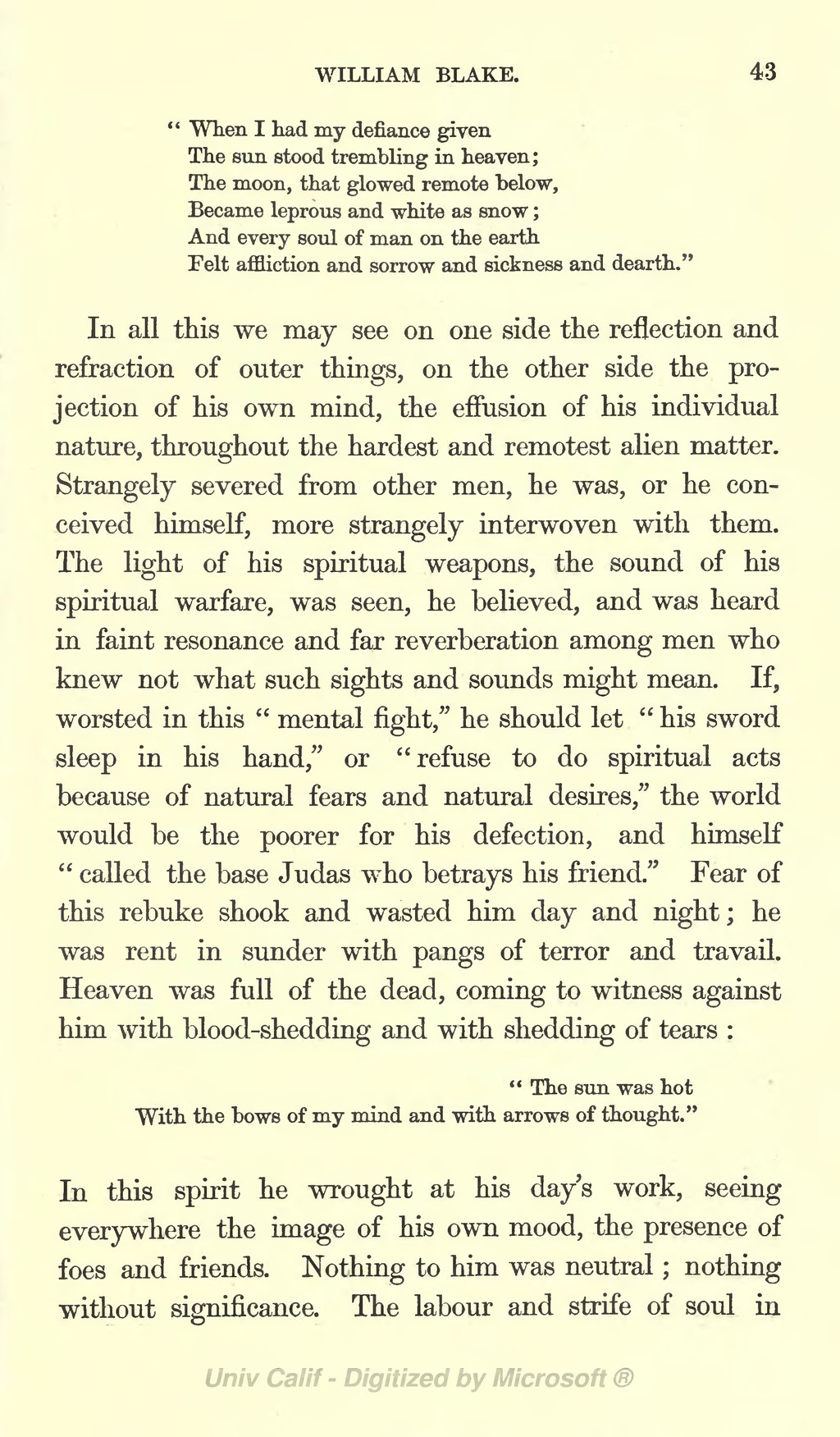When I had my defiance given
The sun stood trembling in heaven;
The moon, that glowed remote below,
Became leprous and white as snow;
And every soul of man on the earth
Felt affliction and sorrow and sickness and dearth."
In all this we may see on one side the reflection and refraction of outer things, on the other side the projection of his own mind, the effusion of his individual nature, throughout the hardest and remotest alien matter. Strangely severed from other men, he was, or he conceived himself, more strangely interwoven with them. The light of his spiritual weapons, the sound of his spiritual warfare, was seen, he believed, and was heard in faint resonance and far reverberation among men who knew not what such sights and sounds might mean. If, worsted in this "mental fight," he should let "his sword sleep in his hand," or "refuse to do spiritual acts because of natural fears and natural desires," the world would be the poorer for his defection, and himself "called the base Judas who betrays his friend." Fear of this rebuke shook and wasted him day and night; he was rent in sunder with pangs of terror and travail. Heaven was full of the dead, coming to witness against him with blood-shedding and with shedding of tears:
"The sun was hot
With the bows of my mind and with arrows of thought."
In this spirit he wrought at his day's work, seeing everywhere the image of his own mood, the presence of foes and friends. Nothing to him was neutral; nothing without significance. The labour and strife of soul in
